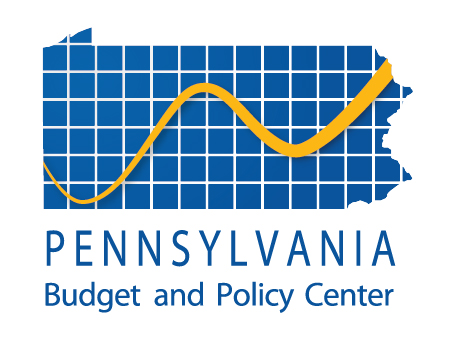
|
||
| FOR IMMEDIATE RELEASE:
June 30, 2022 Contact: Kirstin Snow, snow@pennbpc.org To: Members and staff of the General Assembly, editorial board members, and political writers From: Marc Stier, Director and Diana Polson, Senior Policy Analyst, PA Budget and Policy Center Re: Tax Relief for Working Poor Pennsylvanians in the Next Budget Some discussions about providing tax relief for low-income working Pennsylvanians appear to be part of the current budget negotiations. We want to strongly encourage the General Assembly to take such action by instituting a state version of the federal earned income tax credit. This is especially imperative if the General Assembly is likely to cut corporate tax cuts now. If there are funds to cut taxes for many of the richest Pennsylvanians, there should be funds to cut taxes for low-income, working Pennsylvanians. As we have extensively demonstrated, the PA tax system is unfair, with low-income families paying state and local taxes at twice the rate of the top 1%. Our uniformity clause prohibits the graduated tax rates that make taxes fairer in most other states. But Pennsylvania could make paying state taxes fairer by instituting a state earned income tax credit. It could also do so by expanding the existing tax forgiveness program. But the EITC would send more money to those who need it the most. The federal earned income tax credit (EITC) is a program that puts more money into the pockets of low- and middle-income families by giving them a credit against the taxes they pay. It’s a program created by the Nixon administration and expanded under subsequent Republican presidents. It has traditionally been supported by Republicans who believe, correctly, that it encourages and makes it possible for people with low incomes to enter and stay in the job market. No federal program, other than Social Security, reduces poverty as much. Twenty-nine other states have expanded the benefits of a federal EITC by enacting a state EITC. Pennsylvania should follow their lead. A state EITC is a relatively inexpensive program that is easy for states to implement. Passing a state EITC would benefit nearly 900,000 tax units (or households) in the state. Of those eligible for a state EITC, approximately 410,000 people would be newly eligible for state tax benefits—that is, they are currently not receiving state tax benefits from the existing tax forgiveness program. Because the EITC is refundable for low-income working Pennsylvanians who would not otherwise pay state taxes, it directs more funds to them than an expansion of tax forgiveness. The Pennsylvania Department of Revenue estimates a state EITC would result in more than half a million households receiving a tax refund, which would bring much-needed additional resources to these families. It’s difficult to compare proposals in the absence of complete data, but in the chart below we model the benefits of a proposal to expand tax forgiveness vs. a proposal to create a state EITC set at 15% of the federal credit. Based on the data we have right now, we believe that the costs of the two programs aren’t that far apart. Our modeling suggests that a combination of a new EITC and the existing state tax forgiveness program would get more funds into the hands of the low-income Pennsylvanians who need it the most. A state earned income tax credit would bring much-needed relief to working Pennsylvanians still hurting from the pandemic. And it would help make our tax system fairer.
|